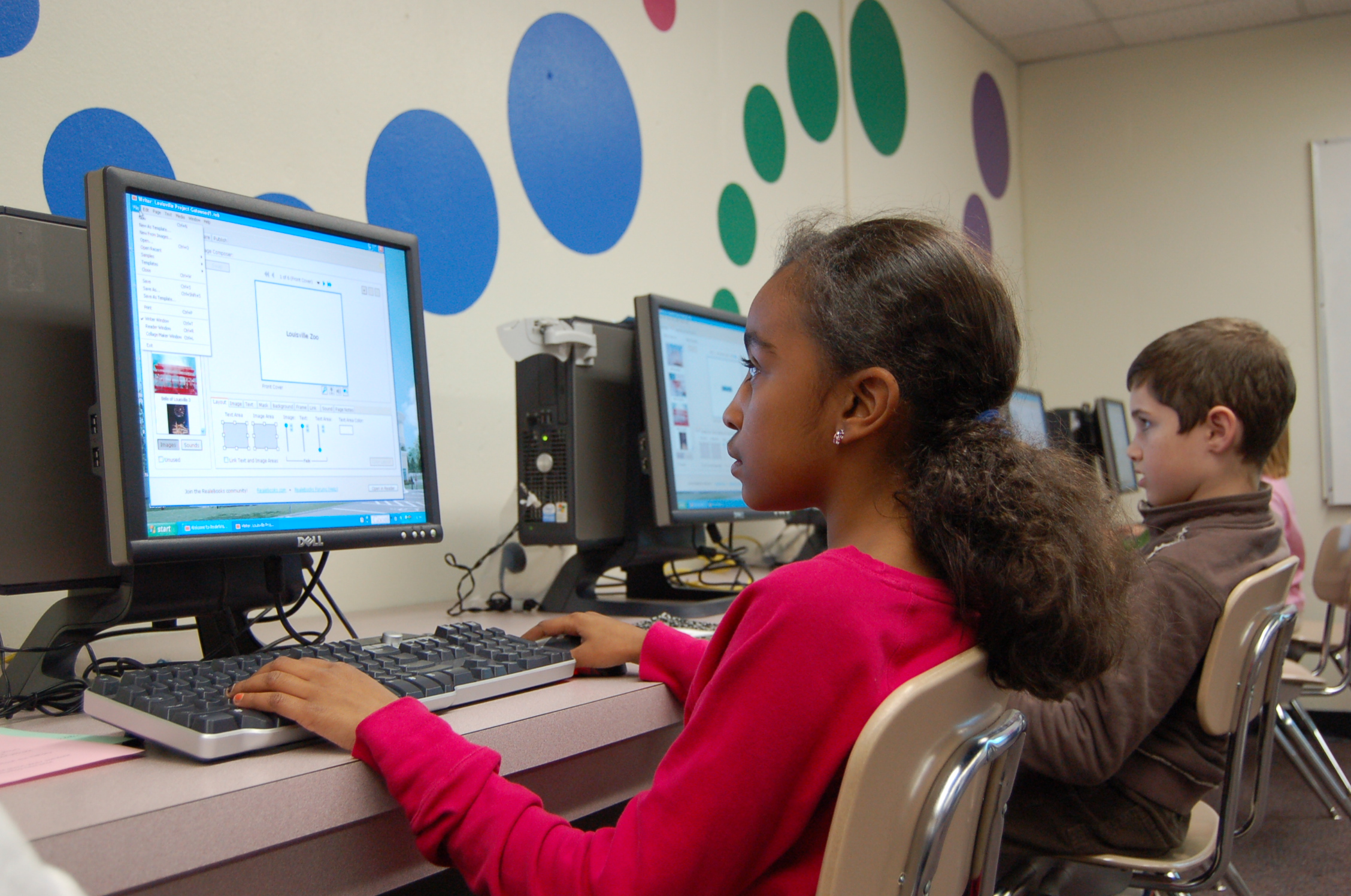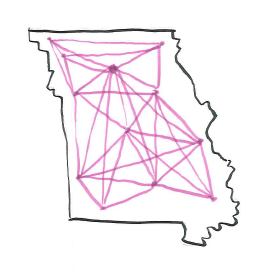BUILDING THE FUTURE: Can Missouri have a statewide virtual school?
After a very successful summer of statewide virtual education provided through Grandview R-2’s Missouri Online Summer Institute (MOSI), the district and their partner K12 are working to provide more virtual education options to students throughout the state during the upcoming school year.
This fall, they will be working together to develop partnerships with other school districts in the state to provide virtual Career and Technical Education (CTE) courses through a new program called Destinations Career Academy of Missouri.
“Right now CTE is an area that a lot of districts want to embrace,” said K12 Vice President of School Development Chuck Wolfe, noting that the new program offers a way to increase CTE offerings in a cost effective manner. “Industries are saying they need skilled workers and they have a shortage of those. The challenge is that the historical model for CTE was very equipment intensive and very localized. Many districts do not have the staff that is required and there are limited resources. But, a virtual model of CTE addresses the needs and gives more students access at a lower cost.”
Wolfe said the new program would provide students in districts that choose to partner with Grandview R-2 access to a wide range of CTE paths.
“A district in southern Missouri could contract with Grandview and allow their students to participate in the Destinations program at a very reasonable price per course,” said Wolfe. “Through one teacher we can reach multiple districts around the state virtually, where as if 20 districts tried to offer these courses on their own they would need to each have their own certified teachers and that is nearly impossible. We think this is really a win-win situation for the state.”
The new program provides CTE courses in Health Sciences, Business Administration, IT, Hospitality, Agriculture, and STEM.
“It provides courses in various career clusters and pathways that are relevant to the workforce needs of Missouri,” said Wolfe. “The DCA program also includes opportunities for industry certifications, college and career exploration tools, virtual CTSO chapters, preparation for the ACT National Career Readiness Certificate (NCRC)/WorkKeys, and work-based learning experiences.”
Current law limits reach
 The new program is limited in its reach by state laws which prevent a full-time statewide virtual school.
The new program is limited in its reach by state laws which prevent a full-time statewide virtual school.
“Grandview said that even though they cannot enroll students around the state full time in this program, they thought it was important enough to start it now so that they could work with some districts during this upcoming school year to really get the foundation in place with hopes that the legislation will pass this spring and do it on a larger scale,” said Wolfe. “In an ideal world, a student could make a decision on their own and decide to enroll in a career program that is being offered through this system, but right now it has to be on a contract by contract basis between the districts.”
“We believe that we can help kids,” agreed MOSI Director Dr. Micheal Brown. “We want very much, with our partner K12, to have a virtual high school in the state. We think there is a need for it and a demand for it. We are ready to have a virtual high school, but unfortunately this year the legislature was not quite ready.”
During the 2017 regular session, the Missouri legislature did consider a bill which would have created greater course access and would have laid the groundwork for a statewide virtual high school, but the bill failed to make it to the governor’s desk.
Wolfe said the bill was a step in the right direction, but noted he hoped the state would consider new legislation in 2018 which would give parents and districts more power over access to virtual education.
He hopes the state will pass a bill which would allow students and parents to choose to enroll in a full-time virtual high school or to simply choose to supplement classes offered in their own brick-and-mortar school with virtual classes offered by other districts.
“If they had the opportunity to tap into some virtual options then that would be amazing,” said Wolfe. “You could bring access to high-quality programs across the state.”
The ideal legislation would give parents and students the ability to choose virtual courses without having to get approval from their home school and would allow districts to offer virtual courses statewide without having to have them approved by the Department of Elementary and Secondary Education.
“The state already has a means by which it holds districts accountable in the approval and utilization of virtual learning,” said Wolfe. “It makes sense to empower districts to say that if they have a virtual program they can make it available to students in other districts on a part- or full-time basis.”
Virtual education would be a boon for rural and urban districts
 Wolfe said he has seen how expanding access to virtual education in other states has really helped a wide variety of traditional public school districts.
Wolfe said he has seen how expanding access to virtual education in other states has really helped a wide variety of traditional public school districts.
“People are initially concerned that there will be a mass exodus from the school, but we have never seen that to be the case,” said Wolfe, noting that most virtual programs draw 1.5 to 2 percent of the entire school population. “Missouri has a ton of rural districts and I think virtual education can save these districts. I think it can bring resources and programs and opportunities to students, things that do not currently exist but that school boards and communities would embrace in a heartbeat.”
“I see this as the future of education for some people,” agreed Brown. “I think it could be an even greater benefit in urban areas because of the crime and problems that are occurring in certain areas of the country. A student can sit at home and be safe and secure and take courses, or a student who is in a failing school district can take courses to enrich their education and compensate for whatever problems are in that school district.”
Grandview, K12 ready to expand offerings
 “If legislation passed in 2018 allowing statewide virtual education then the Destinations Academy would become a full-time virtual school with full classes, guidance counselors, activities, all of that,” said Wolfe. “They would probably offer a program for K-8 as well. They would like to see their virtual program used at every level in Missouri.”
“If legislation passed in 2018 allowing statewide virtual education then the Destinations Academy would become a full-time virtual school with full classes, guidance counselors, activities, all of that,” said Wolfe. “They would probably offer a program for K-8 as well. They would like to see their virtual program used at every level in Missouri.”
“We have people who believe in what we are doing and we believe we are helping kids,” agreed Brown. “There are a lot of parents looking for options for their kids and they don’t care if it is public, private, or whatever. They just want what is right for their kids. I see this program in five years with a statewide virtual school and in the fabric of education in Missouri and some people wondering why we waited so long to do it.”
« Previous Post: Imagine if you could redesign the education system
» Next Post: IMAGINE: What if your child could go to school through their cell phone?